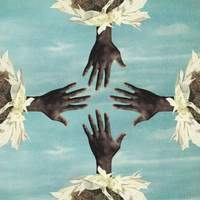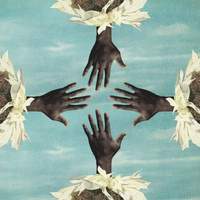Recording of the Week,
Kokoroko, 'Could We Be More'

There’s such a wealth of killer young jazz players on the London circuit at the moment that it can be hard knowing where to start. Thankfully DJ and radio host Gilles Peterson’s label Brownswood Recordings have done an excellent job of curating some of the most interesting and genre-blending acts the English capital has to offer (no surprise, considering Peterson’s past experience as a founding member of both labels Acid Jazz and Talkin’ Loud). Brownswood Recordings currently serves as the home for artists like multi-instrumentalist DoomCannnon (born Dominic Canning) who also released his debut Renaissance only a few weeks back, jazz vocalist and songwriter Muva of Earth, and Peterson’s own jazz-funk project STR4TA.
Kokoroko, the London-based, eight-piece jazz group, are a recent addition to the label’s roster having been around since 2019, founded by trumpeter/vocalist Sheila Maurice-Grey. Labelled as ‘ones to watch’ by The Guardian following the viral success of their track ‘Abusey Junction’ from the self-titled debut EP, the group managed to land a spot at the BBC Proms that September at the Royal Albert Hall, despite the somewhat quiet spell in the music industry in 2020, and all before having released their debut record. That self-titled EP that put them on the map back in 2019 saw the ensemble’s already well-formed fusion of Afrobeat and chilled-out nu jazz in full force, led by Maurice-Grey and her fellow brass players, accented by syncopated bass, choppy guitar and bustling percussion. All of these ingredients and more are here on Could We Be More, but the eight-piece find themselves even more well-versed in their own particular brand of modern jazz.

Kokoroko aren’t interested in making chilled-out background music; similar to several of the more African-influenced London jazz acts, there’s a sense of constant propulsion to Could We Be More, reiterating the motto the band declared on their debut EP: ”This is not idle music!”. All members of Kokoroko share a love for Nigerian music, specifically naming artists like Afrobeat pioneers Fela Kuti and Tony Allen as key influences, and this through-line finds its way into all of the music on the band’s new record, however subtly; even their name ‘Kokoroko’ originates from the Urhobo (a Nigerian tribe and language) word, meaning ‘be strong’. Nigerian music provided the soundtrack to Maurice-Grey’s upbringing, while percussionist Onome Edgeworth notes that its incorporation into the band’s audio aesthetic is a way of him connecting to his past; ”this is a piece of me and this is what I came from”. Could We Be More is not quite as viscerally rhythmic as a group like Sons of Kemet, but Kokoroko seldom go without a strong bass line or danceable rhythm throughout this record.
Being a sizeable band, there’s plenty of texture to dig into with Kokoroko; one of the lead singles from the album ‘Age of Ascent’, for instance, takes some quintessentially nu-jazz chords from keyboardist Yohan Kebede and backs them against funky percussion and guitars, while the group’s lead melodies are played by a trio of brass players – saxophonist Cassie Kinoshi, trombonist Richie Seivwright, and of course trumpeter Sheila Maurice-Grey. You’ll hear this trio again on the vocally-led tracks, singing the mantra to ‘Something’s Going On’ through gritty radio-like distortion, or on the soulful cut ‘Those Good Times’.
Kinoshi takes the spot for some of my favourite solos on the record, like on the aforementioned ‘Age of Ascent’ where the percussion completely drops out for her to take to the stage. Meanwhile, one of the more subtle additions to the ensemble is electric guitarist Tobi Adenaike-Johnson, whose contributions to the band’s soundscapes range from some low-key psychedelic textures like on ‘Ewa Inu’, opening tracks like ‘Dide O’ with some solo passages or accentuating arrangements on ‘Soul Searching’ with some tasteful neo soul-ish chords, as well as a ripping distorted solo on ‘War Dance’.
There are moments throughout Could We Be More that draw more overtly on the West African side of the band’s sound; ‘We Give Thanks’ leans heavier into those aforementioned Afrobeat sounds, right down to the bass line and guitar melody, while the two ‘Blue Robe’ interludes go full-on folk – if there’s any complaint to be made about Could We Be More it’s that there’s only a little over a minute of this style on the album. It’s a diverse album for sure, and not just in terms of genre tags; listen out for the neat switch-up in ‘Ewa Inu’ where the percussive staccato melodies transition into syncopated, flowing brass lines – variety is Kokoroko’s bread and butter. Rooted equally in the sounds of improvised jazz and energetic Afrobeat, Kokoroko’s full-length studio debut proves that even a few years down the line they’re still ones to watch closely.





